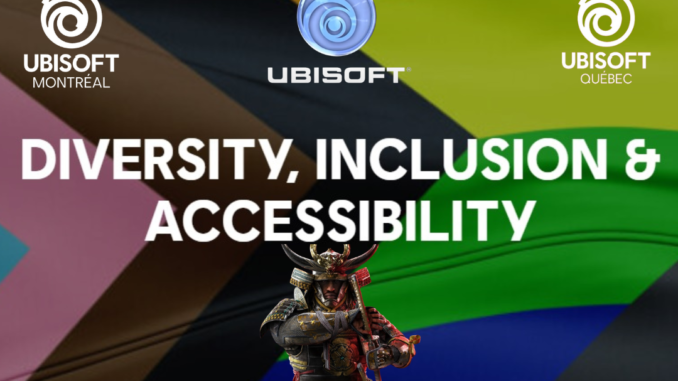
In light of Ubisoft CEO Yves Guillemot’s recent statements about the company’s goal being “not to push any specific agenda” it’s hard to take Guillemot’s statements at face value. Guillemot has a history of lying in order to convince consumers to purchase their games and his statement has prompted a deeper look into Ubisoft and the Canadian government’s relationship to see whether or not Canadian tax incentives provided to Ubisoft have helped fund DEI and even the development of Assassin’s Creed Shadows.
Headquartered in Canada, Ubisoft’s Canadian studios, particularly in Quebec, have long benefited from substantial financial support from the government which includes tax incentives, grants, and subsidies. In fact, the estimate for 2005-2019 is that Ubisoft received CA$1.1 billion in tax credits and subsidies from Canada with 90% of that paid by Quebec. These funds and incentives not only help to fuel the development of AAA titles like Assassin’s Creed Shadows, but they are also playing a key role in driving Ubisoft’s diversity, equity, and inclusion (DEI) initiatives.
The Canadian government, especially when it comes to Quebec, has been trying to position itself as a hub for video game development by offering companies, such as Ubisoft, significant financial incentives which includes tax credits that cover up to 37.5% of eligible development costs. As a result, Ubisoft has received hundreds of millions in subsidies and tax credits over the past couple of decades to support its Montreal and Quebec City studios.
Canada’s financial backing appears to have become integral to Ubisoft’s ability to develop large-scale projects such as Assassin’s Creed Shadows, set in feudal Japan, and Star Wars Outlaws. While there is no official report that directly ties these funds to specific games, there is little to no doubt that the extensive support Ubisoft receives from the government helps bolster the studio’s overall operations which includes the research, development, and technological advancements required to create the latest crop of games.
In addition, Ubisoft Quebec, the studio in charge of developing the controversial Assassin’s Creed Shadows, received funding in 2014 to update its offices with Quebec City giving $500,000 towards that effort. Then there is the fact that Ubisoft Quebec receives $100 million in tax credits annually from Quebec.
But it hasn’t stopped at just financial aid from Canada or simple stipulations of a monetary nature that would benefit the government (it hasn’t). Beyond game development, Ubisoft has woven DEI into the core of its operations in Canada. The company has made significant strides to promote inclusivity, both within its games and its workforce that is falling in line with the Canadian government’s own DEI efforts. Ubisoft Montreal and Quebec City have launched a series of initiatives designed to reflect diverse perspectives and improve representation across the gaming landscape.
To achieve that, Ubisoft has developed six Employee Resource Groups (ERGs) aimed at fostering a sense of belonging for employees from various backgrounds focusing on women, people of color, the LGTBQ+ communities, etc. These ERGs, such as UbiProud, are said to help shape internal policies and even inform game development by ensuring that the characters and stories represent a broad spectrum of these voices.
While one could argue that the government’s financial support does not explicitly mandate DEI requirements, Ubisoft’s focus on, and alignment with, global DEI standards certainly appears to be benefiting the company with building on its public funding. Ubisoft also collaborates with local universities and diversity-focused nonprofits to promote STEM education and encourage underrepresented groups to pursue careers in gaming.
To say that Ubisoft’s commitment to DEI is not going to stop but push forward, would be an understatement. In 2022, Ubisoft expanded its initiatives by strengthening its partnerships with Canadian educational institutions, focusing on increasing representation in tech and gaming careers. The company’s continued commitment to the DEI agenda resulted in receiving the Silver Party Certification from Women in Governance in addition to the continued money, tax credits, and subsidies from the Canadian government.
Ubisoft takes great pride in touting its commitment to DEI and talking about how it has helped the company foster positive relationships with both the Canadian public and its global audience. In 2022, Ubisoft continued to expand its initiatives by strengthening its partnerships with Canadian educational institutions, focusing on increasing representation in tech and gaming careers.
At the same time, the company continues to push the boundaries of game development. With titles such as Assassin’s Creed Shadows on the horizon, the release of a lackluster Star Wars Outlaws that cared more for female inclusion rather than a polished gaming experience, the interplay between public financial incentives and Ubisoft’s DEI initiatives highlights the company’s current approach to game development.
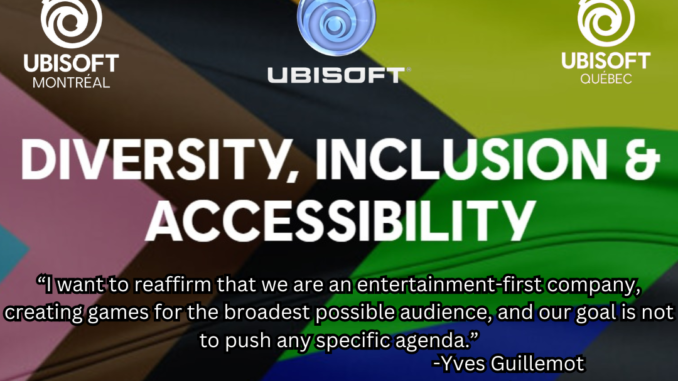
And it is here where we start to look more closely at the games being developed at Ubisoft recently. With a focus on Assassin’s Creed Shadows, one can argue it was developed with DEI in mind and, presumably, partially funded by the Canadian government. But in the pursuit of DEI, Ubisoft has developed and promoted one of the most, in our opinion, racist games to date that takes cultural appropriation to a whole new level in order appease the DEI crowd at the expense of Japan.
In the pursuit of being “woke,” Ubisoft has insulted an entire country as it sought to revise Japan’s history with the help of charlatans, grifters, and clout-chasing click-baiters seeking to cash in and benefit from DEI themselves. Otherwise, why would Ubisoft cancel its appearance at the Tokyo Game Show? Why is Ubisoft “apologizing” for Assassin’s Creed Shadows? Why did it suddenly decide to delay Assassin’s Creed Shadows to February 2025?
Yves Guillemot’s insistence that, “I want to reaffirm that we are an entertainment-first company, creating games for the broadest possible audience, and our goal is not to push any specific agenda,” is hard to believe considering how much money Ubisoft receives from a government pushing DEI. Or how much the company is pushing DEI itself.
As always, it is hard to believe anything Yves Guillemot says since, as stated before, he has a history of lying in order to convince consumers to buy Ubisoft’s games. From lying about DRM not being included in a game, look at R.U.S.E. and From Dust as examples of this lie, to hyping up a game that is obviously underdeveloped like Skull and Bones, the lies are too many and too often to count from a company that is anti-consumer and anti-game ownership. Let’s also not forget Guillemot’s, and Ubisoft’s leadership’s, purposeful avoidance of addressing the issues and accusations surrounding Assassin’s Creed Shadows.
While we must reiterate that the Canadian government’s grants, tax credits, and subsidies are not earmarked for any specific game, one only needs to look at the effects that the years of government-backed incentives and how it has culminated into Ubisoft developing games through a DEI lens. It is a shame how all of that money hasn’t resulted in Ubisoft hiring or cultivating developers who can release high quality and polished gaming experiences.
But on the topic of being woke, how more woke can Ubisoft and Assassin’s Creed Shadows get by delaying the game’s release to February which is, here in the United States, also Black History Month?
Author’s Note: Support this site by donating via Paypal or even checking out our merchandise on Redbubble where you can find designs that cater to writers, readers, and more. Money donated and raised goes into paying for this website and equipment.
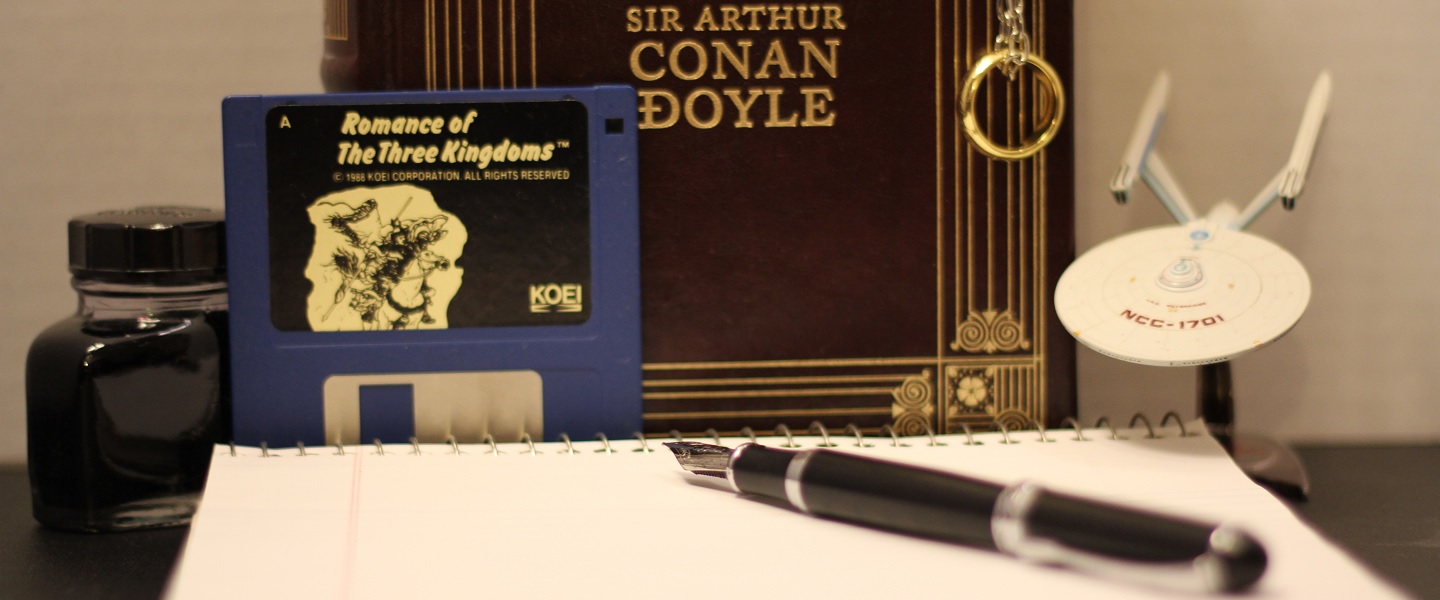
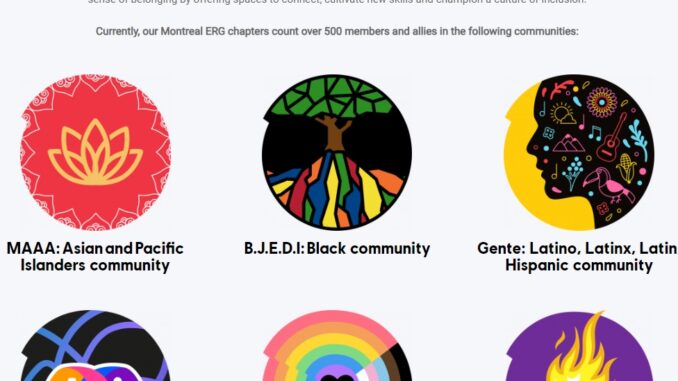
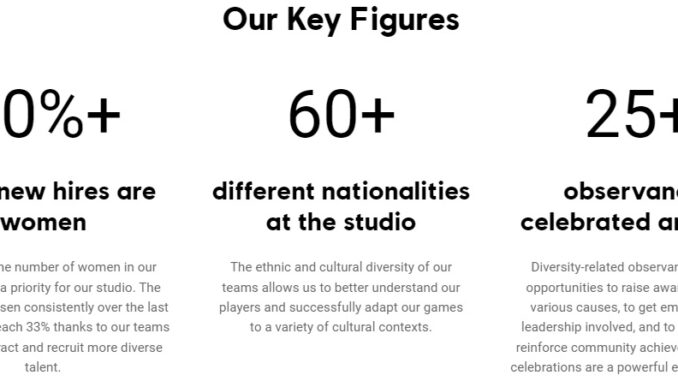
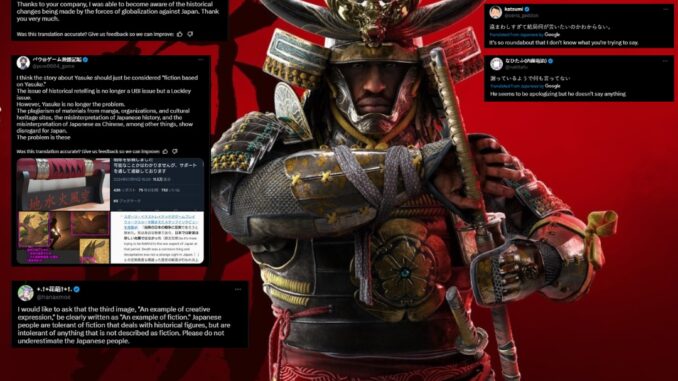

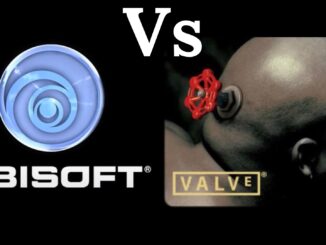

[…] changing their vision and ideas has been an alarmingly-increasing pattern in the gaming industry as developers and publishers cater to this vocal minority trumpeted by video game websites and […]
[…] they didn’t belong or enhance the story. Which has been pervasive, not just in Hollywood, but in video games as well. Considering how much world-building the writers have done, they could have at least […]
[…] broader and mostly self-inflicted challenges for the publisher that also includes DEI and a woke agenda funded in part by the Canadian government. While the Star Wars brand has suffered in the hands of Disney, and could account for a small […]
[…] the cast of allies in the game (obese quota and unattractive chicks quota reached), the amount of government tax incentives Ubisoft receives from Canada, and the company’s own promotion of […]